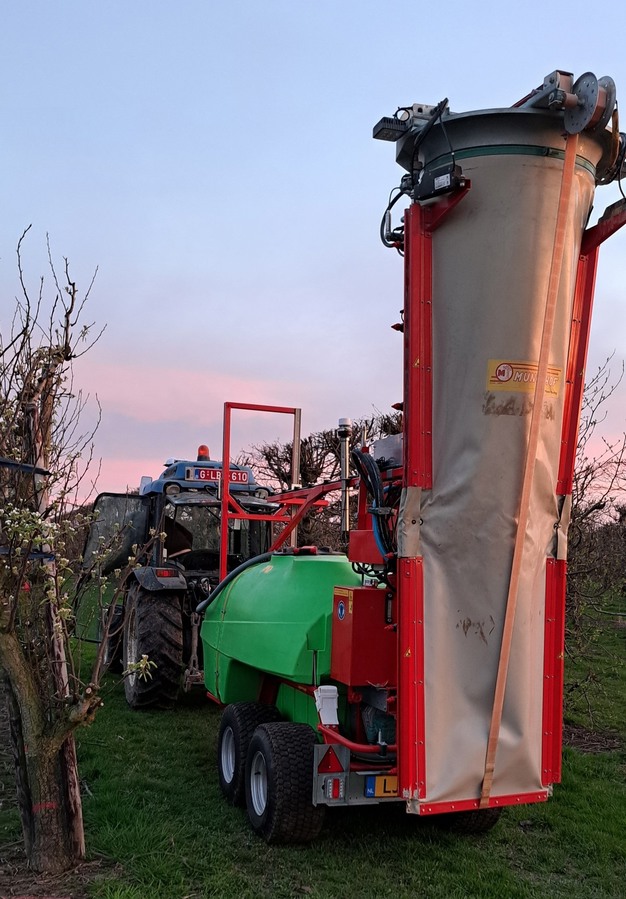Drones, scanners, sensors: electronic tools have become crucial in fruit orchards. "Precision farming will be the key to success," says Serge Remy, Service Head of the Plant Research & Management (POM) Department at Proefcentrum Fruitteelt (PC Fruit) in Belgium. "We're looking at each orchard's specific characteristics, each zone within the orchard, down to each tree. Plots often look very uniform, but they differ tremendously."
Drone over pear plot.
Uniform orchards
Serge explains that soil and light conditions and other determining factors differ across an orchard. "That can mean different disease susceptibility and blossom formation, among other things, and consequently different yields and quality per orchard zone or tree. By considering that variation, we want to make orchards more uniform. You can do that by using specific crop management per zone and tree," he says.
Take blossom pruning. "Traditionally, all trees in an orchard are pruned the same way. For apples, that usually happens during flowering in the Netherlands and Southern Europe (Spain, Southern France, Italy). Belgian growers prefer waiting slightly longer and chemically thin out the small fruits. After all, if there's frost after the blossoms have been pruned, very little fruit remains. Also, the Netherlands has many Elstars, which are rather sensitive to the season. In an on-year, you must intervene during flowering."
 Fruit thinning task card.
Fruit thinning task card.
Ever larger farms
"Automated precision farming is indispensable in today's fruit sector. Cultivation companies are becoming larger and more professional while the labor pool shrinks. To adequately manage their many hectares, growers must hire crop technicians who aren't only horticulturally skilled but also fluent in digital applications. We see it as our job to guide growers in this; since it involves so much, precision cultivation is still a barrier for many," Serge explains.
PC Fruit uses models based on big data to predict fungal or pest outbreaks, for example. "You can use temperature trends to anticipate insect population development. PC Fruit then warns connected growers to take preventive measures. Delphy in the Netherlands, other project partners in ADaM&PreciLa, and we are working on better connectivity between existing platforms."
 Variable spraying machine with PWM & Lidar.
Variable spraying machine with PWM & Lidar.
"We're also working on more centralization on a single platform in Flanders and one in the Netherlands for fruit growing. There, all possible data about a particular plot can be collected. Currently, there are still several partial solution suppliers, each shielding their platforms. We must ensure growers find their way through the melee," Serge concludes.
For more information:
Serge Rémy
PC Fruit
1 Fruittuinweg
3800, Sint-Truiden, Belgium
Tel.: + 32 (0) 11 69 70 80
[email protected]
www.pcfruit.be
